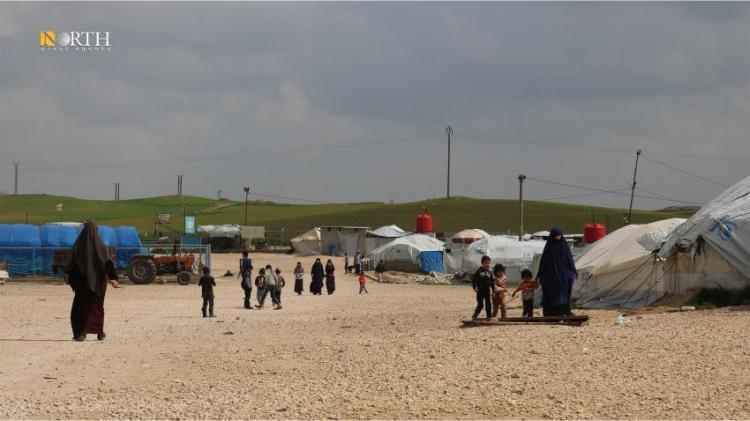QAMISHLI, Syria (North Press) – This week, the Denmark chapter of the Repatriate the Children (RTC) organization visited northeast Syria as part of their effort to push the Danish government to repatriate current and former Danish citizens who joined ISIS from camps in regions held by the Autonomous Administration of North and East Syria (AANES).
RTC Denmark founders Natascha Ree Mikkelsen and Knud Foldschack arrived in northeast Syria to assess the situation of those with ties to Denmark, accompanied by a member of the Danish Broadcasting Corporation who covered their visit.
RTC was originally founded in Sweden in 2020 by Patricio Galvez, who struggled to get his seven young grandchildren out of Hawl Camp after they were orphaned, and Beatrice Eriksson. The organization now has branches in Denmark, which was established in July 2020, and the United States.
Political struggle
The goal of this visit to northeast Syria, according to the founders, is to change the opinion of politicians and lawmakers in Denmark by gathering proof of the severe conditions children face in the camps. “We are the children’s witness,” Foldschack explained.
RTC elaborated on the difficulties they face in securing repatriation for current and former Danish citizens, explaining that for political reasons, most Danish politicians take a hardline stance on Danish ISIS members and their families to appear “tough on terrorism.”
Foldschack added that the Danish government is obligated under laws and conventions to assist children, and stressed that children are innocent regardless of the actions of their parents.
Mikkelsen also mentioned that the Danish government has so far chosen to ignore a 2020 report by the Danish Security and Intelligence Service (PET), which stated that younger children of parents who left Denmark and travelled to Syria to join in armed conflict pose little risk, and added that “the risk of indoctrination and influence generally increases the longer the children stay in a radicalized environment, including in the camps in north-eastern Syria.”
There currently seven women, 19 children, and two men with former or current Danish citizenship in camps and prisons in northeast Syria, most of whom are in Roj Camp, RTC told North Press. They added that at least three individuals were stripped of their Danish citizenship, a controversial step which many other European countries have also taken and which observers argue is a violation of international law and leaves these individuals stateless.
Efforts
During its visit to northeast Syria, RTC visited Hawl Camp once, and Roj Camp twice, where they met Danish women and children as well as the camp administration and the Kurdish Red Crescent medical team. The proof of the conditions that they gather, they hope, will persuade the Danish government to repatriate its citizens.
UN Undersecretary General of the UN Counter-Terrorism Office Vladimir Voronkov recently stated that countries should repatriate their citizens in Syria, and said that children are suffering from “horrific conditions” in the camps.
Mikkelsen explained that RTC works with the families of Danish citizens in northeast Syria’s camps, makes visits to the camps and prisons to meet with current and former Danish citizens, and brings their stories and the conditions of the camps to the media.
She added that the fear of children of ISIS families returning to Denmark is unfounded, that Denmark has a strong de-radicalization program and material and psychological support for children, and that all adults who are repatriated, including mothers of repatriated children, will be arrested and prosecuted according to the country’s laws.
“The children are suffering and they get worse and worse. The security situation is deteriorating and it’s both shocking and embarrassing that Denmark won’t take responsibility and help the Kurdish people with this issue,” Mikkelsen said.

